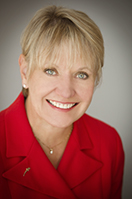This information has been provided by Center for REALTOR® Development and is a recap of its most recent podcast.

In working with mature clients, in many cases it’s not simply about the transaction—it’s about helping clients get ready for the next chapter in their lives. What are some of those lifestyle choices? In episode 13 of our Center for REALTOR® Development podcast, guest Bobbi Decker joins Monica Neubauer to talk about their experiences with the senior market and as Seniors Real Estate Specialist Designation® (SRES®) instructors.
Decker, who has been in real estate for 35 years, got started working with mature clients when some of her first clients came back to her looking for new solutions as they began to age. For many of her clients, she’s been part of their story as she’s helped them with their lifestyle changes.
While Decker herself doesn’t plan on ever retiring, many baby boomers are getting to the age of retirement, turning 65 at the rate of 10,000 per day. Some of them have saved up their money, but others have spent their funds traveling, supporting kids and grandkids, and their finances aren’t quite what they hoped going into retirement.
International Retirement Moves
One potentially affordable retirement option to consider—especially with the value of the dollar going further in areas outside the U.S.—is relocating internationally.
Decker discusses retirement communities in Central America that offer affordable retirement housing for mature clients. Decker has been traveling to Costa Rica, Ecuador, Panama and Nicaragua to see some of the locations for these retirement communities.
Decker shares some of the things to be aware of if you’re interested in purchasing international real estate and living abroad. The biggest thing is the infrastructure in some of these countries: making sure the water gets connected, and you actually have hot and cold running water. You also want to make sure you know of the local customs and expectations, as well as tax laws. Getting help from a REALTOR® who is connected with NAR Global can help you get the answers you need.
Senior and Assisted Living
Not everyone wants to retire outside of the U.S. There are still many options for people wanting to change their lifestyle locally after retirement. Many older clients are looking for places where they can get a little extra help, like nursing homes or assisted care. These types of communities have really come along, as well, and they’\re changing for the older generations because of the baby boomers, who are making arrangements for their own parents, as well, and have certain expectations they want met.
Some of these new facilities are very nice, but they can definitely be expensive. Some people will use the money locked up in their current house to help pay for retirement living. This is an option that needs to be researched thoroughly and reviewed by senior advocates, such as attorneys and financial planners.
For agents, when you’re working with mature clients who are looking for senior living, there usually isn’t reimbursement for agents who help in these situations. Nevertheless, marketing departments at assisted living and retirement centers are very nice and are usually willing to work with REALTORS® to answer questions and advise about options, if only to generate social and business connections in their communities. Cultivating these relationships will benefit the real estate professional in the long run, as well.
Getting Educated With SRES® Is Key
The SRES® coursework is meant to help teach real estate professionals how to help their 50-plus-aged clients. A key benefit of the SRES® designation is getting access to the program’s vendor list to help build a team that will help mature clients. They may need an elder care attorney, a finance person, or someone who can help them sort out their stuff. This stuff is their memories, and you have to be very careful and respectful in how you deal with this. Your clients can take the opportunity of the services these vendors provide once you become an SRES®.
Final Thoughts
Some of Decker’s final thoughts on the topic are to get the experts involved; get the people involved who know what they’re doing. If you’re trying to do legal things yourself, there could be tax ramifications involved and other expenses for your clients. An SRES® designation will give you the list of vendors that can help provide expertise in some of these situations. Your clients will notice when you take the extra time to care for them during the whole transition to their new lifestyle as they age.
Our monthly podcast focuses on education in the real estate industry. It addresses formal education programs (such as those from NAR) and informal sources of industry knowledge (such as peers and mentors). Its intended audiences include REALTORS®, real estate professionals, allied professions (such as appraisers and lenders), educators, education providers, and consumers. To listen or subscribe, visit www.crdpodcast.com.
For more information about the online SRES® coursework described here, as well as all of our other online courses, please visit RISMedia’s online learning portal from NAR’s Center for REALTOR® Development (CRD) and the Learning Library. Here, real estate professionals can sign up for online professional development courses, industry designations, certifications, CE credits, Code of Ethics programs and more. NAR’s CRD also offers monthly specials and important education updates. New users will need to register for an account.
For the latest real estate news and trends, bookmark RISMedia.com.











